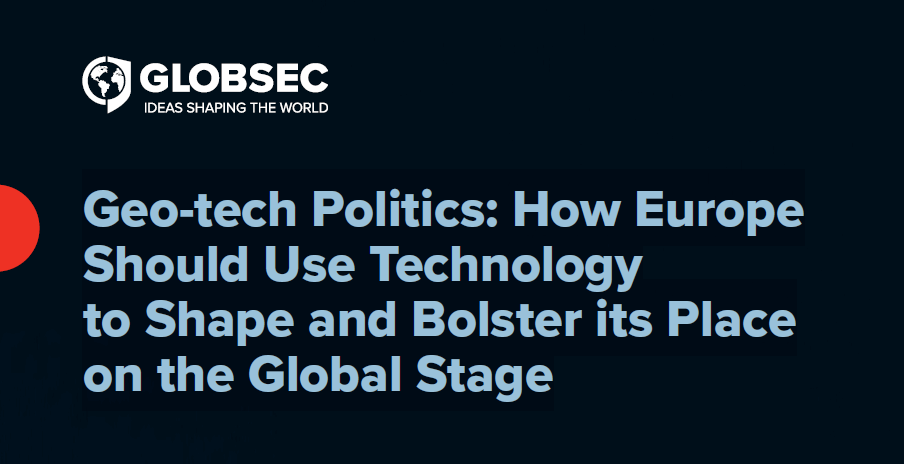Geo-tech Politics: How Europe Should Use Technology to Shape and Bolster its Place on the Global Stage

Almost seven years have passed since the Juncker Commission first put forward a package of measures to establish the digital single market, with a view to extending the principles of the single market to the digital space. Seven years later we need to reach far beyond that goal. Over the last decade numerous geopolitical changes, combined with economic and health crises, have reshuffled power and competitiveness standings.
The highly competitive geopolitical environment has undoubtedly affected the EU too. The Von der Leyen Commission considers itself to be geopolitical in orientation. Geostrategy, nonetheless, is still not seen as a horizontal task. It rather appears only during some particular decision-making processes. Technology, for example, is key to Europe’s geopolitical interests. Nevertheless, most EU measures and proposals are confined to internal market mechanisms. The digital single market, which is now inseparable from the concept of the single market, is only plausible, however, if decision-makers heed its implications for the EU as a global player.
Throughout history, technology has transformed economies and societies, redistributed power among states, empowered new actors, and shaped international relations. Nonetheless, the EU, for all its pathbreaking work on regulation, does not appear to have recognized the geopolitical impact of contemporary technology. The need for digital sovereignty has been one of the priorities of the Von der Leyen Commission from the outset. The Commission has also devised numerous ambitious proposals to make 2020-2030 a real Digital Decade for Europe, not just enabling the EU to remain competitive but to further enhance competitiveness in the digital age.
Yet in the current geopolitical environment, it is not enough for Europe to be merely tech-compatible. The EU needs to further strive to be a tech leader on the global stage. Leveraging access is not sufficient over the long term. A change in approach is rather needed to elevate the tech ambitions, capabilities and capacities of European economic actors to the highest level. Tech policy is always geopolitical. Breaking up US technology companies at a moment the US finds itself battling for supremacy with China is a geopolitical act and so too is excluding Chinese telecommunication firms from European networks. Europe’s actions engender geopolitical consequences that extend beyond the Union.
In the policymaking process, however, this is often overlooked, with little space provided for anticipating impacts on external actors. To pursue a geopolitically sound digital policy, the European Union must create a regulatory and policy environment for EU economic operators that favour these institutions over economic actors outside the EU – at least to the same extent that global competitors do for their own market players. But certain conditions must be met to foster progress herein. The tech gap within the Union, for one, needs to be narrowed through the development of digital capabilities. Rather than digital aptitude, the digital efficiency of economic players should be fostered. And as opposed to digital sovereignty, digital autonomy, including the technological means for this autonomy, must be developed first and foremost. Artificial intelligence governance within the EU, moreover, should be directed towards European geopolitical purposes. The bloc, finally, must strive to develop effective digital partnerships in both intra-EU and extra-EU contexts.
Read more in the PDF below.
